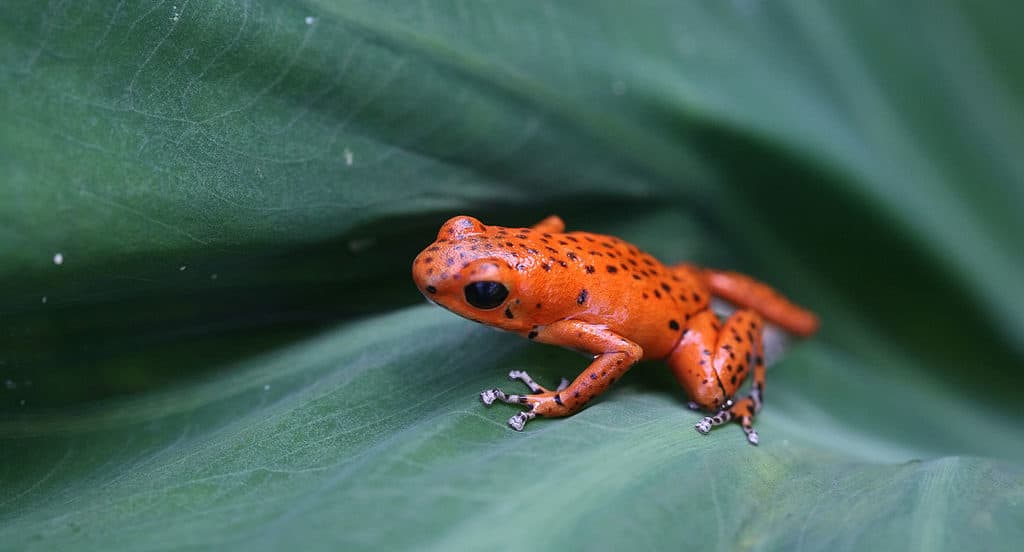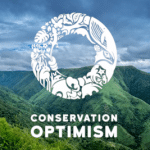Wondering what went right this week in the conservation world? We’ve got you covered with our Conservation Optimism Round-Up! Each week we are collating stories of optimism from around the globe so that you never miss your dose of Monday Motivation.
1. Canada announced $1.43 million for Inuit protected and conserved area on Hudson Bay island chain
“The Canadian government announced on Thursday that they’ll invest $1.43 million in the creation of an Indigenous Protected and Conserved Area (IPCA) on a Hudson Bay island chain, to help protect the habitat for species at risk as well as other wildlife.”
2. Rare Wangarru wallaby colony has begun to grow again after years of dwindling numbers
“A rare native wallaby population found only in the New South Wales Far West and outback South Australia has slowly begun to grow again after years of dwindling numbers.”
Rare Wangarru wallaby colony grows in leaps and bounds after rains in Far West NSW - great news for yellow footed rock wallaby numbers #SavingourSpecies #conservationoptimism @TSCommissioner https://t.co/rhJ8GbbZ7j
— Linda Bell (@Ljbell3Linda) November 13, 2020
3. A new Indigenous Protected Area now conserves nearly 29,000 acres of Chocó rainforest
“This is the largest area of Colombia for the conservation of the golden poison frog (Phyllobates terribilis) 28.766 acres, which represents 56.9% of the territory of the Calle Santa Rosa Indigenous reservation of the Eperãra Siapidaarã indigenous people”
4. 100 bison found a new home with the Rosebud Sioux Tribe
” The Tribe will create the largest native-owned and managed bison herd in North America.”
After 150 years, the return of the #LakotaBison is a huge reason to celebrate the #SpeciesRecovery to their native #Prairie and its traditional #IndigenousGuardians
— Question Mark (@markday331) November 9, 2020
Gathering pace, where will the next herd be released?#GenerationRestoration
Cause for #ConservationOptimism https://t.co/mF5GiAUpLy
5. Indonesian grassroots female activists are being celebrated in a new Mongabay /The Project Gecko series
“Indeed, looking back on her six years of activism, Sukinah does not see setbacks and despair. She sees an education. ‘I never went to school,’ she said. ‘So I sought knowledge, and I found so much.’ She pointed to the environmentalists, lawyers and scientists she has met along the way, and her experiences outside her village. It was a journey that brought her both happiness and pride.”
The Kartinis of Kendeng set their feet in cement to stop a mine they feared would pollute their community's water. They put their bodies on the line, and one of them didn't make it. But they were empowered by their struggle. Read their story.
— The Gecko Project (@geckoproj) November 16, 2020
https://t.co/RisuIZ7dBN
6. Orphaned rhino calves got second shot at life in the wild
“There was good reason to celebrate recently when two orphaned rhino calves were given a second shot at life in the wilderness after being released into Somkhanda Game Reserve, a community-owned wildlife refuge in northern KwaZulu-Natal.”
Orphaned rhino calves get second shot at life in the wild https://t.co/kvPOuxgLob via @TimesLIVE
— WildlandsSA (@WILDLANDSSA) November 13, 2020
7. A giant marine sanctuary surrounding world’s most remote inhabited island has been announced
“Announced today by the Tristan da Cunha government, 90 percent of the waters around the island chain will become a ‘no-take zone’ in which fishing, mining, and other extractive activities are banned.”
NEW marine protected area, one of the largest in the world, is to be created around Tristan da Cunha islands, protecting millions of #seabirds, whales, sharks and seals
— RSPB Science (@RSPBScience) November 13, 2020
20 years of work inc research by #RSPBScience @susana_requena1 https://t.co/aGXnsGHTBi #ConservationOptimism
Have a story to share for our weekly round-up? Use #ConservationOptimism on Twitter, Facebook, LinkedIn and Instagram!


